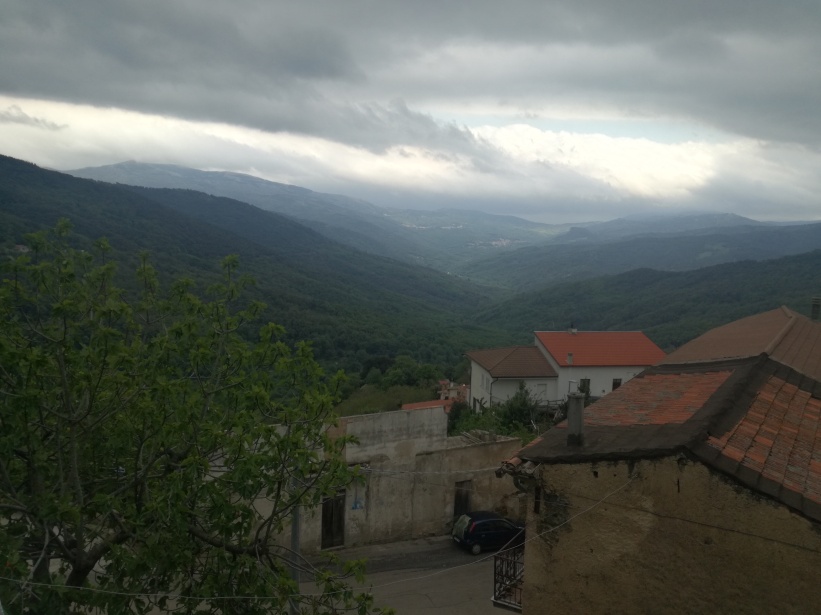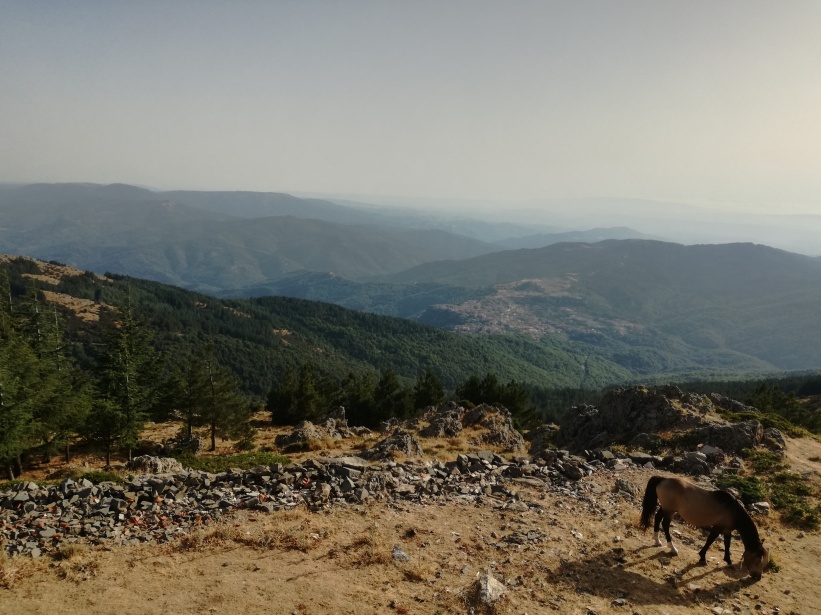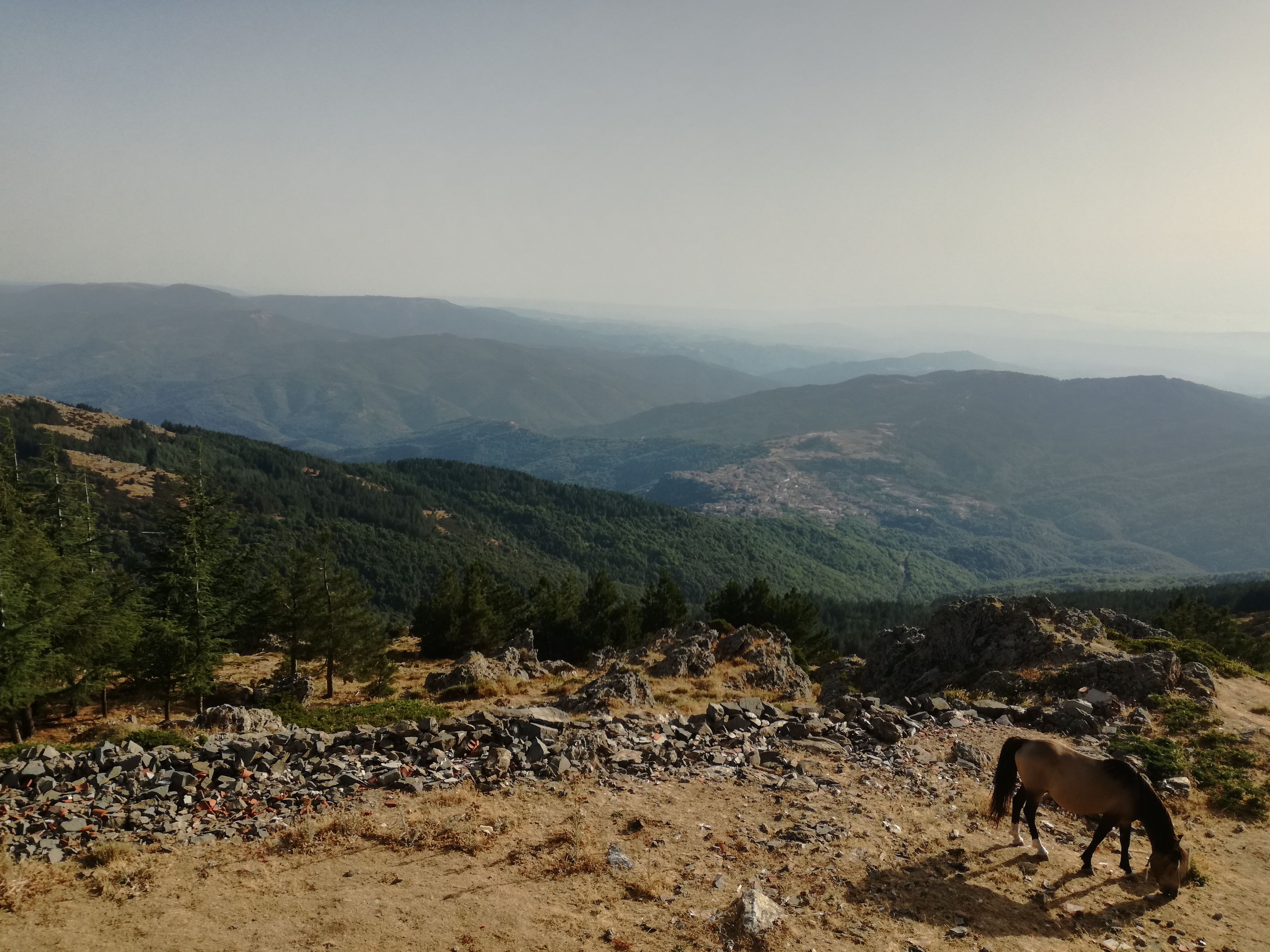The celebrated Italian writer and translator, Cesare Pavese, wrote in his 1949 La luna e i falò: “Un paese ci vuole, non fosse per il gusto di andarsene via.“
In a recent translation, Tim Parks (author of the Calcio classic A Season with Verona) reformulates this as: “You need a place that’s home, if only for the excitement of leaving.“
However, Pavese lingers on the term ‘paese’, which can be further appreciated if considered as ‘town’ or, rather, ‘village’. This idea of leaving a small town resonates with many in the rapidly de-populating rural areas of Sardinia, Italy, and one such place is Tonara, a community of around 2,000 inhabitants in the mountainous central area of Barbagia.
This very Tonara played a vital role in the climax of the relegation drama of Serie A’s 2020/21 season, as the town provided two of the protagonists of last Sunday’s six pointer between Benevento and Cagliari that ended in a 3-1 away win for the Sardinians. Marco Sau (33) and Andrea Carboni (20) probably best embody the ‘excitement of leaving’ described by Pavese over half a century ago. The two football players were raised in Tonara a generation apart but have both trod thousands of steps on the same Viale della Regione past the statue of the town’s hitherto most famous son, the Sardinian national poet, Peppinu Mereu.
Perhaps not many people have heard of this fairly obscure provincial town, aside from the football tifosi of Benevento and Cagliari, Sardinians in general, nougat lovers, and D.H. Lawrence aficionados. In 1921, Lawrence wrote Sea and Sardinia as a result of a sort of pilgrimage he underwent to visit Nuoro, the birth town of the 1926 Nobel Literature Laureate, writer Grazia Deledda. And along the way he stumbled across Tonara, a place he saw as “a big village, shining like a New Jerusalem.” Lawrence’s experience of Tonara comes across, in part, as full of the literary cliches surrounding the figure of the ‘noble savage’, which, more often than not, has been associated with the far-away region of Barbagia.
But don’t be fooled: Tonara is far from being the mythical setting for a fairy-tale story, and it is even less so a ‘holy’ town. It can be framed, instead, as a microcosm of virtues and vices of the rest of the peninsula – although, if lucky, one might encounter the occasional fairy in the luscious countryside, hidden by a chestnut tree or sitting on a branch of a hazelnut tree.
Yet, Lawrence wasn’t completely wrong in the way that he captured the essence of this town, which, beyond his poetic visions, escapes the same understanding of those who stay in and those who leave for new adventures. The mountains that surround the town create the optical illusion that everything starts and ends within the natural boundaries of Tonara, and that nothing exists beyond its circular horizon. The sky seems within hand’s reach, an effect probably caused by the altitude, perhaps better incapsulated by the words of the holy centaur in Pier Paolo Pasolini’s Medea: “Che bel cielo! Vicino, felice!” (“What a beautiful sky: close, happy.”)
Tonaresi are aware that the idiosyncratic traits of the local character are anything but natural, as they are the result of the main activities of the town: poetry and trade. Tonara, in fact, is where the unofficial regional anthem Nanneddu Meu, written in the nineteenth century by Tonara’s own Peppinu Mereu in ‘limba sarda‘ (Sardinian language), comes from.

The poem is styled in epistolary form and takes the shape of a song of social protest which engages with issues like poverty, injustice and the oppression of the Sardinian proletariat. A role that a top flight Cagliari Calcio also maintains by keeping Sardinia in the national conversation fuelled by the feverish daily football coverage in Italian sports papers, social media feeds and TV and radio shows. On the other hand, Tonara is renowned in the region for its typical dessert, a crunchy nougat, which represents the main business in town – alongside the production of ‘campanacci‘, cow and sheep bells, the creation of which is in the hands of a few families and passed from generation to generation. Carboni and Sau’s upbringing would have been underscored by this melodic, if percussive, constant soundtrack which exists in Tonara, a symbol of the pastoral past, created by the handful of artisans who maintain this ancient trade.
The two sides of this coin are integrated within Tonara: a profound sensitivity towards the arts and a tendency to look at the outside world through the art of trading and selling goods. Therein is contained the character of its people, who can be, at once, goliardic and loud, but also taciturn and thoughtful.
Now, let’s return to Marco and Andrea, and their talents forged within the gaze of Mereu. These sons of Tonara play very different roles on the pitch and, like Calvino’s Il Visconte dimezzato, they represent the two halves of the Tonarese spirit – their journey to professional football following very different paths.
Marco Sau is the poet, haunted by the peaks of Monte Susu no matter where he finds himself, an introvert to whom confidence does not immediately appear. A man to whom words do not come easy but when they do, they demand attention. On the pitch, he is the same – a spiritual successor to Gianfranco Zola (also born in the Nuoro regione where Tonara is located), he operates in the lines between, making his impact from his technical ability and footballing intelligence. His route to the Rossoblu jersey took some unusual meanders – playing for the local US Tonara team before abruptly bidding farewell to his classmates at the local scuola media aged ten to live and train in West Scotland.

Pavese’s ‘excitement of leaving’ did not last long and he returned to il paese soon after, only to be ‘discovered’ at the age of 16 and enter the ranks of the Cagliari youth team. Never quite recovering from escaping the domed mountainous horizon of Tonara, he struggled to plant roots with the club, going on several loan spells, before excelling with Foggia under the stewardship of another outsider poet, Zdenek Zeman, before exploding into form with 21 Serie B goals for Juve Stabia in 2011-12. He returned to Cagliari the following season, spending seven campaigns with Sardinia’s biggest club, scoring 50 league goals, the most for the club by a native to the island.
Andrea Carboni is the merchant, leaving the mountainous ring of seclusion to excel as a confident young leader. A muscular centre back equally talented in Ju-jitsu as he is in football, he followed a more direct route into Cagliari Calcio. Once he was scouted and recruited into one of the Rossoblu Academies, he made an immediate impact as a leader once he arrived with the Primavera squad and then, shortly afterwards, marked Andrea Belotti out the game in his first senior start in 2020. At the time he was the second youngest defender in the league and has since made 20 first team appearances, also signing a long-term deal in February this year.
It is striking to consider that this small village represented the majority of top-flight Sardinian footballers last season, an incredible quirk of statistics considering the island has a population of 1.64 million people. In a contemporary footballing universe in which clubs like Cagliari are several pages down the list of invitees to the European Super League, players like Sau and Carboni are a vital part of ensuring the DNA of the club behind arguably the most romantic league win of the 20th Century lives on.

One of the authors of this piece has seen this impact with their own eyes. As a visitor to the Tia Lia bar in Tonara in 2018, Henry was struck (via his fragmented Italian) at how the patrons were more interested in the fortunes of Inter, Milan and Juve than that of the Cagliari team. Two years later a ‘Carboni 44’ shirt is hanging up in the bar and Calcio orientated conversations (over an ice cold Ichnusa or a shot of mirtu, or both) are centred around Cagliari and how Carboni’s fiery temperament needs toning down a little. Despite this criticism, there is a palpable pride in the fact that a local boy is not afraid to assert himself on the pitch – as Gazzetta put it in an article last year, he is il boy d’oro.
Central to the flames of Sardinian talent burning brightly on the Sardegna Arena pitch is the second most famous Nuoro born Gianfranco – Gianfranco Matteoli. An underrated cog in the great Inter Scudetto win of 1989, he has played a central part in Sardinian youth football in initiatives both within and outside of the Cagliari team. Both Sau and Carboni were discovered by him and it has almost become a cliché for families with young children in Tonara to try to get their Calcio-mad offspring into one of his football schools which take place across the Isola.
Which of the boys who left the village will avoid relegation? The troubled poet, coming to the end of his career or the gifted young merchant with the world at his feet? Sau’s footballing intelligence and respect within the game mean that, irrespective of the footballing fortunes of Benevento and Cagliari this season, a future Rossoblu team steered by the poet and led by the merchant is not the stuff of fanciful verse. Perhaps there could be role for the man who guided their first steps out from the mountains, too?

